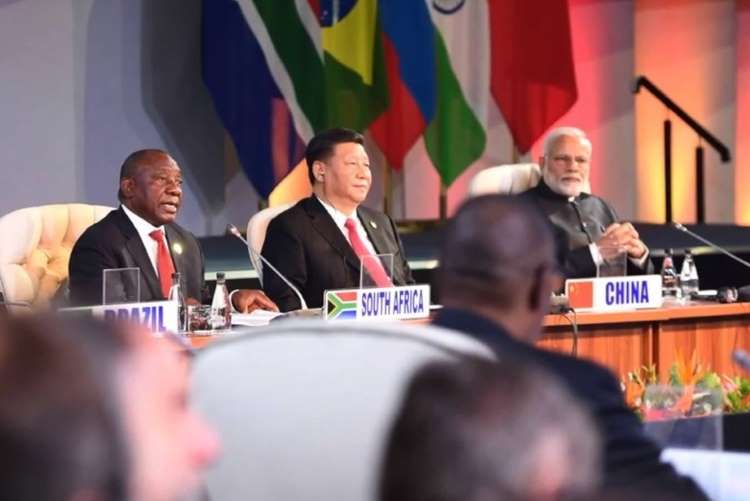Implications of BRICS expansion: The 15th BRICS Summit held in South Africa last month marked a significant turning point in the evolution of this influential bloc. The addition of Argentina, Egypt, Iran, Indonesia, and Saudi Arabia as new members has thrust BRICS into the global spotlight, raising questions about India’s position and concerns. An examination of the possible implications of this expansion highlights the need for India to adopt a cautious approach towards the development.
The most apparent outcome of BRICS expansion is the potential enhancement of BRICS’ influence on the global stage. With the addition of these five nations, BRICS will represent a more substantial share of the world’s population and economy. The expanded grouping will eye structural changes in international institutions like the UN Security Council, where the West’s dominance has been long-standing. While this sounds promising, India must tread carefully.
READ I Online gaming: India needs innovative approach to regulation
BRICS expansion and Western power
The call for reforming the UN Security Council, particularly increasing the number of permanent members and granting them veto power, is bound to meet resistance from the Western powers. Nevertheless, if BRICS remains united in its demand, it could apply significant pressure on the West to concede to reform. However, this is a delicate diplomatic dance, and India must be prepared for the potential backlash from Western nations.
One commendable aspect of the BRICS Summit was the commitment to combat climate change. This is undoubtedly a positive development for the global community. Still, it is essential to remember that BRICS countries remain major greenhouse gas emitters, making it crucial to monitor their actual progress in meeting these commitments.
The agreement to invest in infrastructure projects in developing countries is another promising move. Economic growth and improved living conditions in these nations are vital, and BRICS’ support can play a pivotal role. However, it is equally important that these investments align with sustainable development goals and do not exacerbate existing challenges.
The topic of de-dollarisation was also on the agenda, which could have a profound impact on the global economy. If BRICS countries decide to reduce their reliance on the dollar in international trade and finance, it could weaken the dollar’s status as the world’s reserve currency. Such a shift could bring instability to the global financial system. India must closely monitor these developments as they could have far-reaching economic implications.
READ I BRICS currency faces challenges, but potential benefits are huge
However, the bigger picture suggests that India’s cautious approach to BRICS expansion is prudent. Currently, BRICS countries account for approximately 26% of global GDP, significantly lower than the G7’s 44%. If all 22 countries that have applied for BRICS membership are admitted, the new BRICS’ share in world GDP will only increase to 33%. This expansion does not substantially alter the balance of power on the global stage.
In terms of nominal GDP, China currently dominates BRICS with 70%, while India holds a respectable 13%. After BRICS expansion, China will maintain its significant influence, while India’s share could potentially drop below 10%. This shift underscores the importance of India’s cautious stance. While China remains a major force, India must be vigilant about safeguarding its interests within BRICS.
Additionally, the diverse nature of the current and aspiring BRICS members raises questions about the bloc’s sustainability and efficiency. These countries differ significantly in their development stages, economic structures, governance systems, and political alignments. This heterogeneity challenges the ability of the new bloc to make coherent decisions and may affect India’s interests adversely.
The expansion of BRICS brings both opportunities and challenges. While it has the potential to enhance the bloc’s global influence, India must remain cautious about the potential consequences, especially in the face of China’s dominance within the group. The heterogeneity of the new members and the divergent interests at play make it crucial for India to protect its interests and navigate this new terrain with prudence and foresight.

